Best Cities to Retire in Europe: Start with the Czech Republic
More and more retirees from the UK, US, Canada, and other Western countries are looking east—towards Europe—for their golden years. And they have good reason to. Europe offers an unmatched combination of safety, quality of life, cultural richness, and modern infrastructure. In fact, over 3 million foreign pensioners currently live in Europe, and the number is rising steadily as the post-pandemic generation of baby boomers seeks better value and deeper experiences abroad.
But with 40+ countries, dozens of visa regimes, and wildly different lifestyles, choosing the best places to retire in Europe isn’t easy. That’s why we’ve created this guide: to help you navigate what matters most—and highlight where lifestyle, cost, and opportunity truly align.
Why Europe Attracts Pensioners
Europe offers a rare balance: it’s both deeply historic and deeply functional. Retirees can stroll through medieval streets in the morning, see a doctor in a modern clinic by noon, and attend a classical concert by night—all within walking distance. But beyond romance, Europe also makes economic sense.
- Healthcare: Most European countries offer universal healthcare or affordable private plans. In the Global Health Index, 9 of the top 15 countries are in Europe.
- Safety: Statistically, Europe remains one of the safest continents on Earth, with low violent crime and political stability.
- Accessibility: Excellent public transport, walkable cities, and a growing focus on senior-friendly infrastructure.
- Culture & Social life: Whether it's opera in Vienna, tapas in Valencia, or spa rituals in Karlovy Vary—Europe celebrates life at every age.
- Residency programs: Many EU and Schengen countries offer pensioner or retirement visas, especially for those purchasing property or demonstrating stable income.
Importantly, retirees no longer want to “retreat”—they want to relocate with purpose. Europe offers that sense of purpose—along with a slower rhythm, better air, and often, a lower cost of living than staying home.
Why the Czech Republic?
Low cost of living with a high standard of comfort
Universal healthcare system accessible to foreign residents
Safe and stable country with a tolerant society
Excellent transport connections—in the heart of Europe
Easy access to long-term or permanent residency through property investment
Karlovy Vary – Your Elegant Escape from the World
If Vogue curated a list of best cities to retire in Europe, Karlovy Vary would be at the top. This historic spa town offers calm mornings in the forest, evenings with a glass of wine and mineral water, and a backdrop of Art Nouveau architecture, colonnades, galleries, and film festivals. It's a place that heals more than just the body.
 | 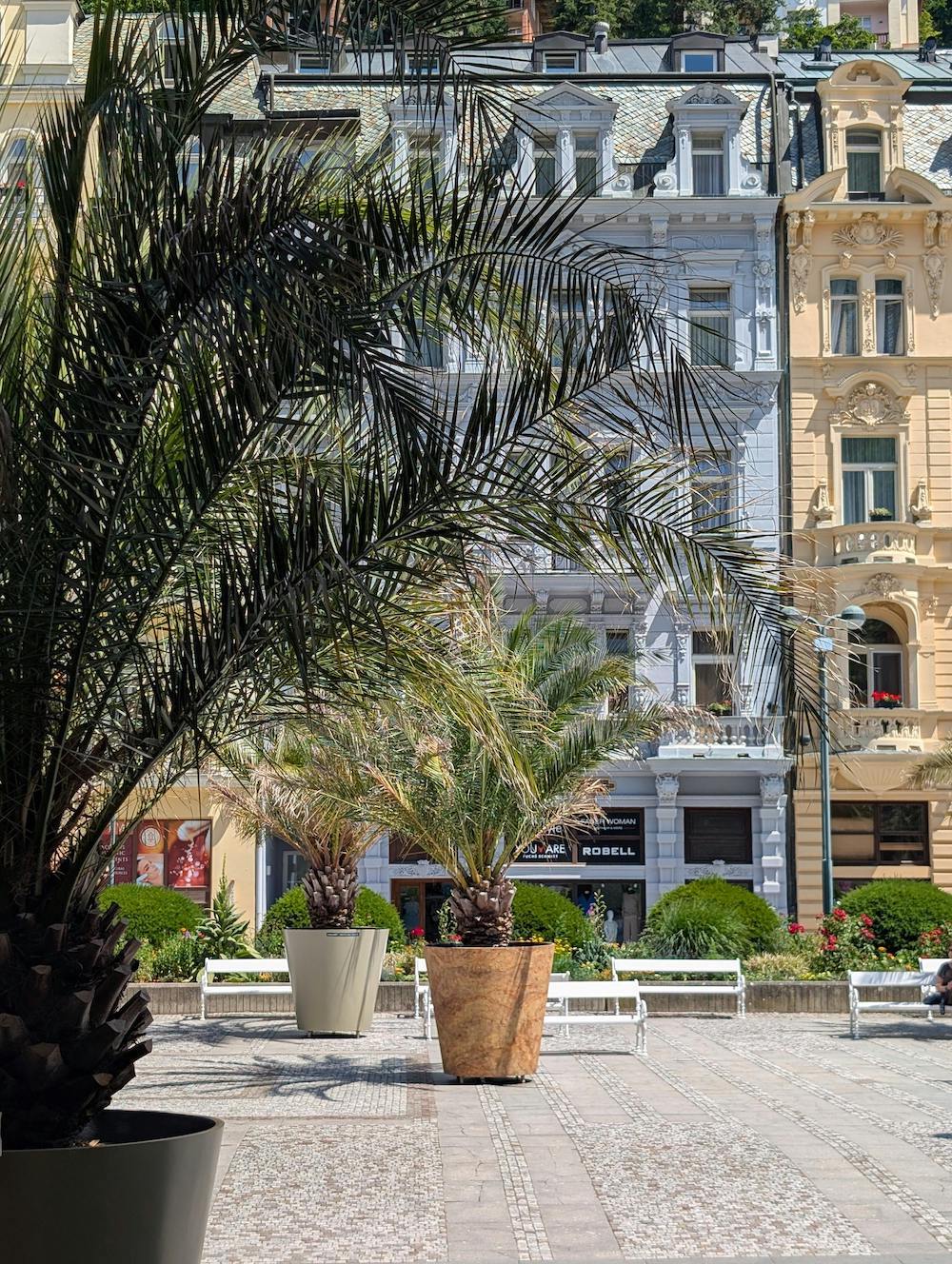 |
Why Karlovy Vary?
Spa lifestyle with world-class wellness infrastructure
Nature at your doorstep—walking trails, cycling, golf, fresh air
A vibrant cultural life—from classical music to international film events
Clean, quiet, and safe environment—the kind of luxury money can’t buy
With the D6 highway near completion, Prague is just 60 minutes away by car
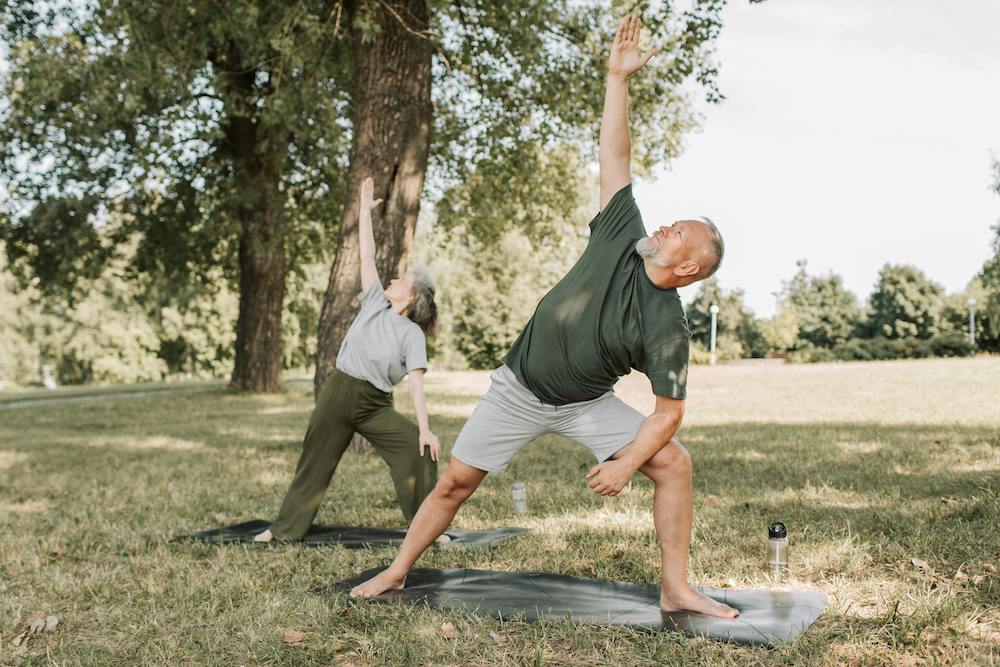
|
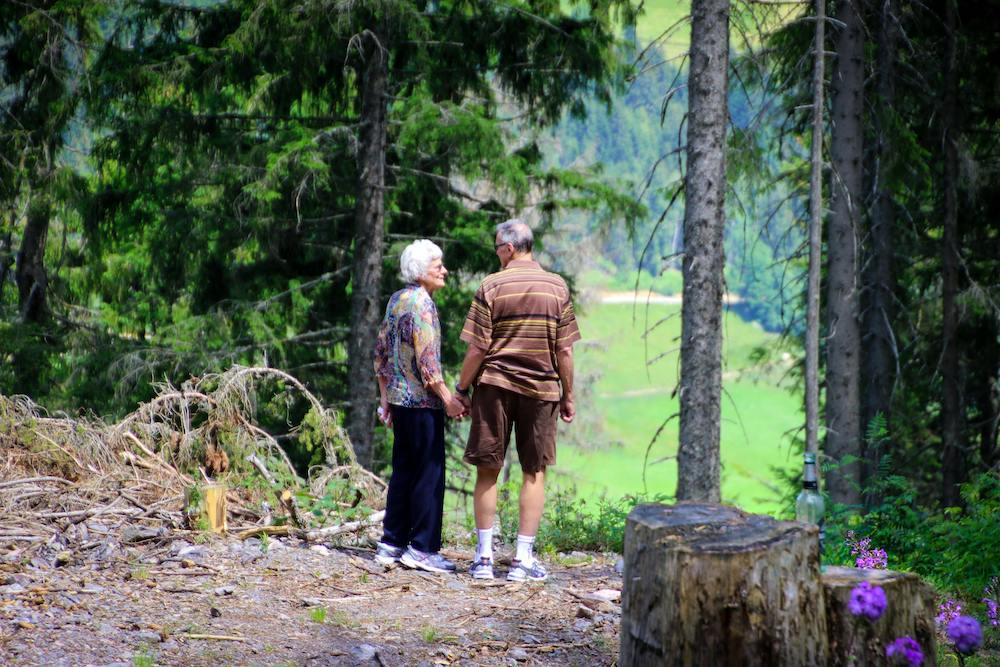
|
 |
Living with Comfort and Character
Buying property in Karlovy Vary means more than real estate. It’s an investment in peace, comfort, and a quality life. Prices are still significantly lower than in Prague or Western Europe, while rental returns often exceed 5–6% annually.
The VaryLife project combines timeless design, energy efficiency, and modern standards. Apartments are nestled in green surroundings, just minutes from the colonnade, and ready for immediate move-in—tailored to those who value comfort, calm, and long-term liveability.
Retiring in Karlovy Vary isn’t stepping offstage. It’s an intermission in the front row.
|
Key Factors to Consider When Choosing a Country to Retire in Europe
Retirement abroad isn’t just about geography—it’s about how you want to live, feel, and age. Here are the main factors to evaluate before choosing a destination:
1. Cost of Living and Retirement Finances
It’s essential to look beyond housing and groceries. Consider taxes, pension rules, and hidden costs. Countries like Portugal, Slovenia, and the Czech Republic remain affordable places to retire with a high standard of living.
2. Healthcare and Insurance
A top priority. Look for countries with strong, accessible public or private healthcare. Czechia, Austria, Spain, and Slovenia all perform well in this area.
3. Climate and Environment
Some retirees seek sun (Portugal, Spain), others prefer milder seasons (Czech Republic, Slovenia). Clean air and access to green space are now just as important as temperature.
4. Cultural Compatibility and Language
Look for countries with welcoming local culture, thriving expat communities, and strong English proficiency. The Czech Republic, Portugal, and Spain stand out.
5. Visa Options and Residency Pathways
Many countries offer long-term residency through property purchase or pension-based visas. Be sure to check requirements thoroughly—they vary widely.
6. Senior-Friendly Infrastructure
Public transport, pharmacies, barrier-free access, and daily services make all the difference in everyday comfort and independence.
Top 10 European Countries to Retire In
Czech Republic
A hidden gem in the heart of Europe, Czechia combines a high quality of life with low living costs, excellent healthcare, and a central location that makes travel easy. Especially popular among German, British, and Russian retirees.
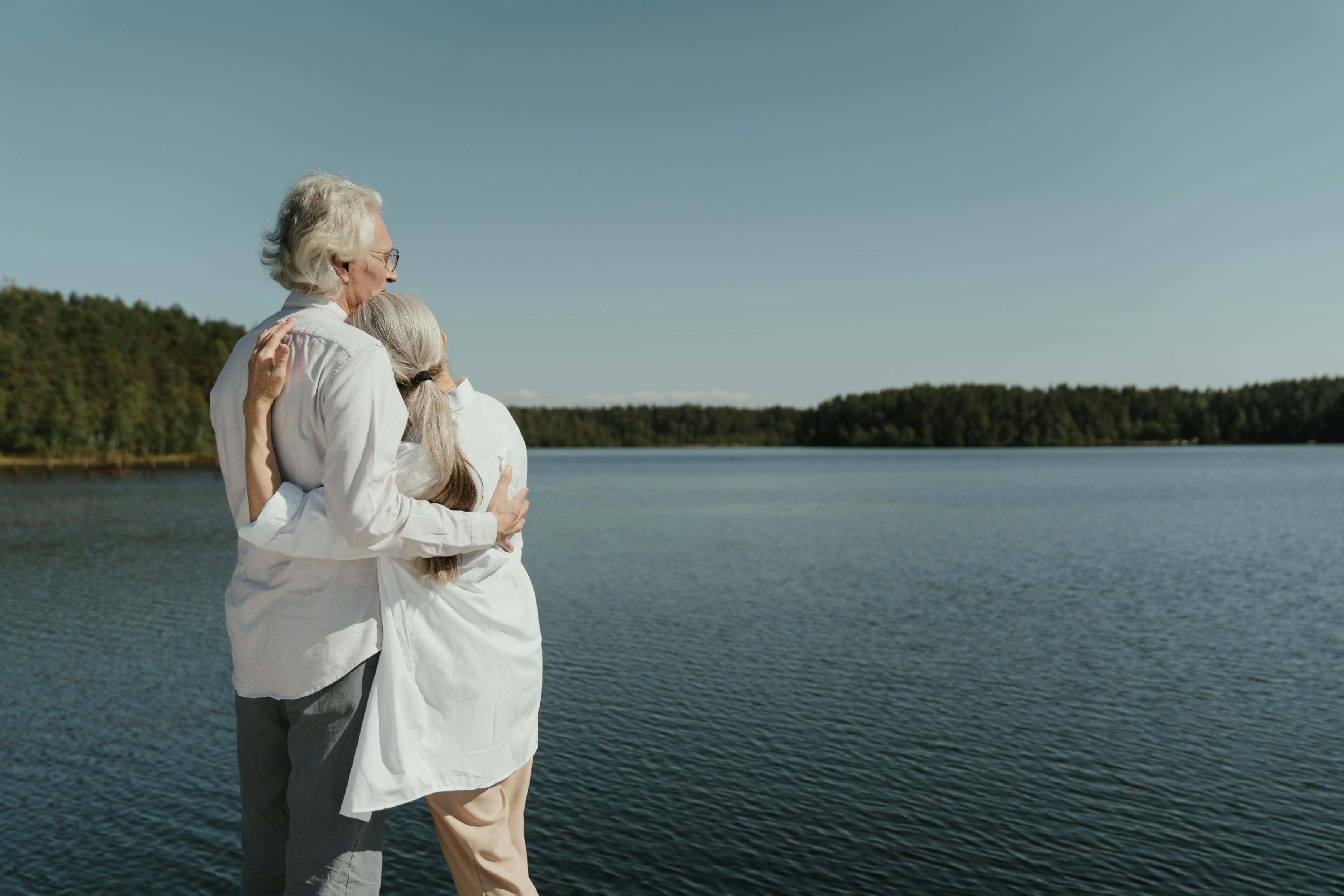
|
- Property prices & rent:
Avg. purchase price: ~€2,400/m² nationwide
Prague: ~€5,200/m² | Karlovy Vary: ~€2,600/m²
Rent: ~€600–800/month for a 1-bedroom in mid-sized cities like Brno or Pilsen; Karlovy Vary: ~€550/month - Taxes:
Foreign pensions are exempt from taxation under most double taxation treaties (e.g. with UK, Germany, US). No wealth tax, and property tax is symbolic (typically <€100/year). - Healthcare:The Czech public healthcare system is funded by insurance contributions. EU citizens receiving pensions can often access the system through reciprocal agreements. Non-EU pensioners are typically required to take out private health insurance, which costs approximately €80–150/month depending on age and coverage. In spa towns such as Karlovy Vary, many doctors and clinics provide services in English or German.
- Residency:
Non-EU citizens can apply for long-term residence based on property ownership or passive income. Owning real estate (especially through projects like VaryLife) can ease approval. Permanent residency possible after 5 years. - Expat community:
Karlovy Vary has long hosted German and Russian retirees. Prague has over 200,000 foreign residents, and English is widely spoken in cities. Facebook groups like Expats in Prague, Foreigners in Brno, and Life in Karlovy Vary are active and helpful.
Portugal
A long-time retirement favorite with mild climate, English-speaking communities, and affordable private healthcare.
- Property prices & rent:
Avg. purchase price: ~€2,200–2,800/m² (Lisbon higher: €5,000+)
Rent: ~€750/month for a 1-bedroom in regional towns (Lisbon: €1,200+) - Taxes:
The popular NHR (Non-Habitual Resident) tax regime for foreign retirees was cancelled in 2024. Currently, foreign pensions are taxed progressively, typically at 10–25%. - Healthcare:
Public healthcare (SNS) is available to residents with modest co-payments. Many retirees prefer private insurance, which is affordable (~€50–150/month). - Residency:
Portugal offers a D7 passive income visa, suitable for pensioners showing regular income (min. €820/month as of 2025) or savings. After 5 years, applicants can seek permanent residency or citizenship. - Expat community:
Large and active. Over 50,000 expats live in the Algarve alone. Facebook groups like Expats Portugal and Algarve Retirement are extremely active.
Spain
Spain offers a diverse landscape, great food, and a strong healthcare system—all with relatively low costs outside major cities.
- Property prices & rent:
Avg. purchase price: ~€1,600–2,400/m² (Madrid and Barcelona: €4,000–6,000/m²)
Rent: ~€650–900/month in regional cities; lower inland - Taxes:
Foreign pensions are taxed as ordinary income (progressive scale: 19%–47%). Double taxation treaties may apply (e.g. with US, UK, CA). - Healthcare:
One of the top public healthcare systems in Europe (ranked #7 globally). Retirees with legal residency can access it through convenio especial (~€60–157/month depending on age). - Residency:
Non-lucrative visa for non-EU retirees is the main route. Applicants must show proof of passive income (~€2,400/month for singles in 2025), private health insurance, and accommodation. - Expat community:
Estimated 1M+ foreign residents; large retirement populations in Valencia, Costa Blanca, and Andalusia. Expats Spain and numerous local communities are well-established.
Slovenia
Often called the “Switzerland of the Balkans,” Slovenia offers clean air, green landscapes, and a peaceful lifestyle—without the Swiss price tag. It's ideal for retirees seeking nature, calm, and access to both the Alps and the Adriatic Sea.
- Property prices & rent:
Avg. purchase price: ~€2,200–2,800/m² (Ljubljana: ~€3,500/m²)
Rent: ~€600–800/month for a 1-bedroom in Ljubljana; ~€500 outside cities - Taxes:
Foreign pensions are taxed progressively (16%–50%), but bilateral treaties often reduce or eliminate double taxation. Slovenia has no wealth tax or inheritance tax for close relatives. - Healthcare:
Slovenia has a solid public healthcare system with high ratings in quality and efficiency. EU retirees can register with Zdravstvena zavarovalnica (health fund). Non-EU pensioners usually opt for private plans (~€80–130/month). - Residency:
EU citizens can register residency with proof of income and insurance. Non-EU applicants can apply for temporary residence based on sufficient income (min. €1,050/month), with renewal possible annually. Property ownership helps the case but is not mandatory. - Expat community:
Still relatively small but growing. Ljubljana and the Lake Bled region are the most popular areas. Online groups like Expats in Slovenia or Digital Nomads Ljubljana offer support and events.
Italy
From rolling Tuscan hills to southern coastal villages, Italy offers retirees a lifestyle rich in culture, beauty, and food. While major cities can be expensive, smaller towns and rural areas remain highly attractive and surprisingly affordable.
- Property prices & rent:
Avg. purchase price: ~€1,800–2,500/m² (Rome: ~€3,800/m²; Tuscany rural: ~€1,500/m²)
Rent: ~€700–1,000/month in cities, ~€500 in smaller towns like Lecce or Lucca - Taxes:
Foreign pensions are generally taxed at standard progressive rates (23–43%), but Italy offers special flat tax schemes for foreign retirees who relocate to southern regions—7% flat tax for 10 years in towns under 20,000 people in the south. - Healthcare:
Italy has a public healthcare system (SSN), largely free or low-cost for residents. EU retirees can access it via European Health Insurance or local registration. Non-EU citizens may use private insurance or join the SSN for an annual fee (~€400–1,000). - Residency:
EU citizens need only register locally. Non-EU retirees can apply for elective residence visa, requiring proof of income (~€31,000/year for singles), health insurance, and accommodation. After 5 years: long-term EU residency possible. - Expat community:
Large and well-established. Tuscany, Umbria, and Sicily are popular among retirees from the UK, US, Germany, and Scandinavia. Active communities include Expats in Florence, Living in Le Marche, and Retire in Italy Forum.
France
France offers a sophisticated lifestyle, world-class healthcare, and picturesque regions perfect for retirement. From historic towns in Normandy to sunny Provence, it combines comfort and culture — though often at a higher price point.
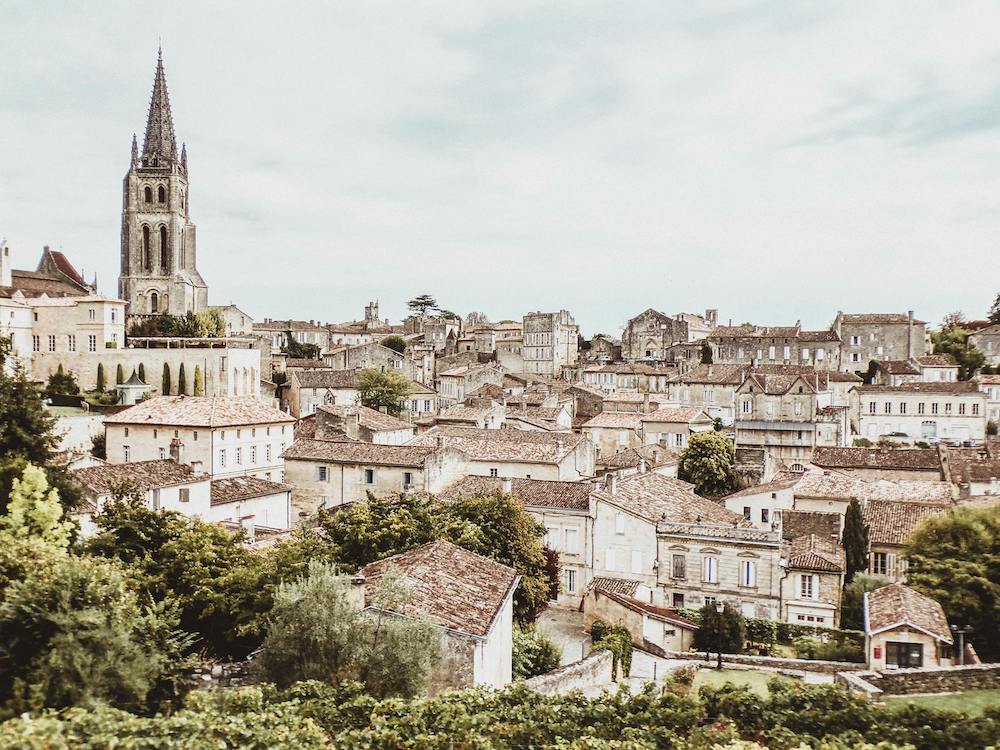
|
- Property prices & rent:
Avg. purchase price: ~€2,800–3,500/m² (Paris: €10,000+; Bordeaux: €4,000; rural Normandy: €1,600–2,000/m²)
Rent: ~€800–1,200/month in cities, ~€500–700 in smaller towns - Taxes:
Foreign pensions are taxed progressively (11%–45%) unless exempted by a bilateral agreement. France has wealth tax on real estate assets above €1.3 million and relatively strict reporting for foreign income. - Healthcare:
The French system (PUMA) is among the best in the world. Legal residents can register after 3 months of living in France. EU retirees are generally covered via EHIC/S1 forms. Private top-up insurance (mutuelle) is common (~€50–120/month). - Residency:
EU citizens simply register with local authorities. Non-EU retirees can apply for a visitor visa (long séjour) showing sufficient income (~€1,400/month for singles), proof of accommodation, and private health insurance. - Expat community:
Strong in regions like Provence, Brittany, Dordogne, and Languedoc. Popular among British, Dutch, American, and Scandinavian retirees. Groups like Expats in France, The Local France, and Retire in Provence offer vibrant networks.
Austria
Austria is known for its order, safety, and exceptional public services. It’s ideal for retirees who value clean cities, nature, and a structured, high-quality lifestyle—with access to world-class medical care and Alpine beauty.
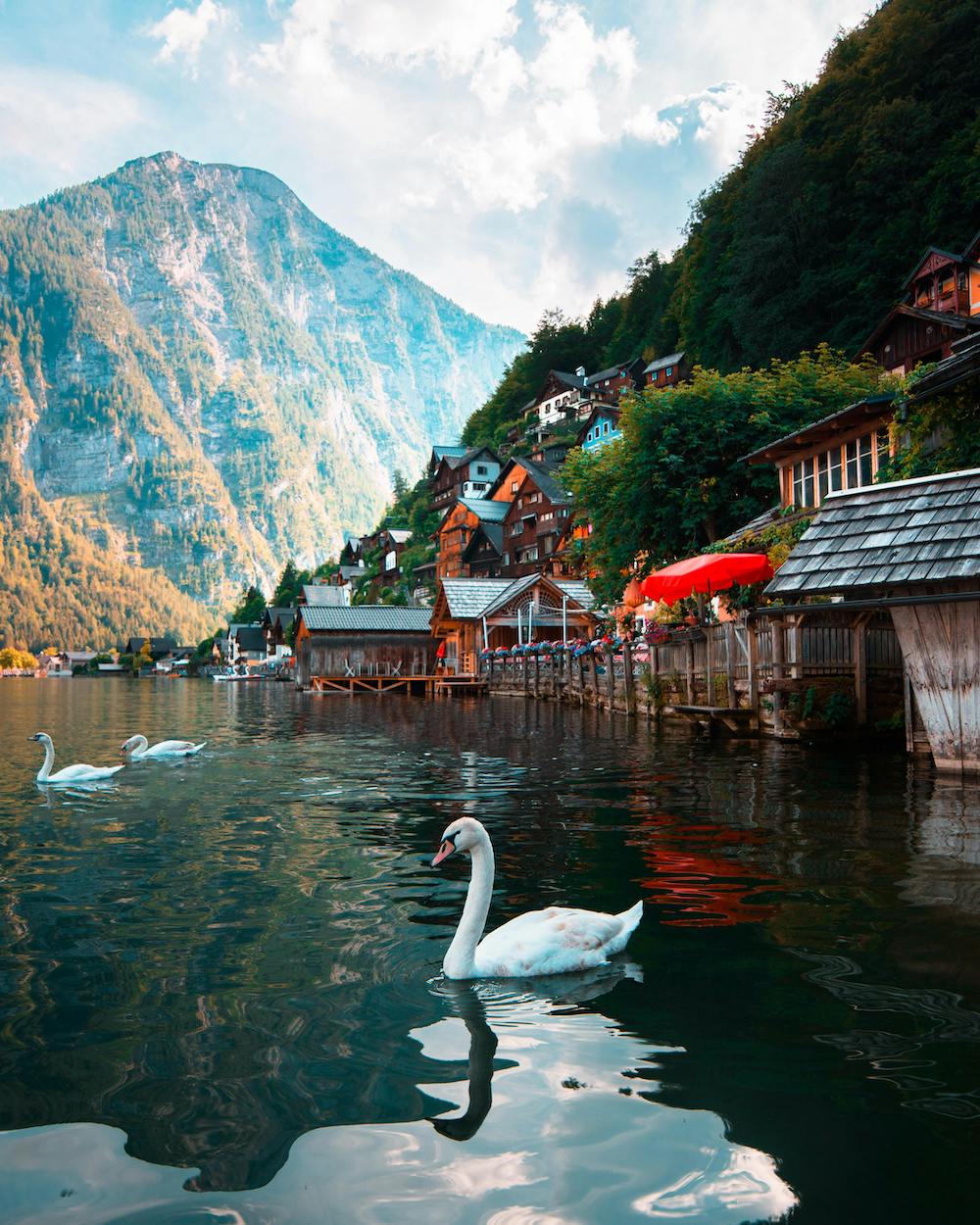
|
- Property prices & rent:
Avg. purchase price: ~€4,000–5,500/m² (Vienna: ~€6,000/m²; Graz: ~€3,800/m²)
Rent: ~€900–1,200/month in cities; ~€700–900 in smaller towns - Taxes:
Foreign pensions are taxed progressively (0–50%), depending on income and applicable treaties. Austria has a comprehensive tax system but no wealth tax. - Healthcare:
Austria offers one of Europe’s best healthcare systems—universal, efficient, and accessible. Legal residents are required to join the public health insurance (ÖGK), or, in some cases, use private insurance (~€150–250/month). Facilities are modern and widely available, even in rural areas. - Residency:
EU citizens can register freely. For non-EU retirees, Austria offers a residence permit for financially independent persons (“Niederlassungsbewilligung”) with strict quotas. Applicants must prove sufficient income (~€2,220/month for singles in 2025), accommodation, and full private health insurance. - Expat community:
Vienna is a cosmopolitan hub with a strong English-speaking network. Salzburg and Klagenfurt attract retirees with nature and culture. Active groups include Vienna Expats, Austria Retirement, and Expat Center Vienna.
Greece
With over 200 days of sunshine per year, relaxed lifestyle, and low property prices, Greece has become one of Europe’s most appealing retirement destinations—especially for those seeking sea, simplicity, and history.
- Property prices & rent:
Avg. purchase price: ~€1,200–2,000/m² (Athens: €2,500+; islands and inland: €1,000–1,500/m²)
Rent: ~€500–800/month in cities, ~€400–600 on islands or smaller towns - Taxes:
Greece offers a flat 7% income tax for foreign pensioners who become Greek tax residents and move funds to Greece—valid for up to 15 years. Otherwise, progressive rates apply (9%–44%). - Healthcare:
Public healthcare (EOPYY) is available to residents and generally free, but varies in quality—particularly outside major cities. Many expats rely on private healthcare, which is affordable (~€50–120/month for insurance). Athens and Thessaloniki have international hospitals. - Residency:
EU citizens register with minimal bureaucracy. Non-EU retirees can apply for a Financially Independent Person visa, requiring ~€2,000/month income and private insurance. Alternatively, the Golden Visa is available for property investments above €250,000. - Expat community:
Particularly strong in Crete, Corfu, Rhodes, and the Peloponnese. Active online communities include Expats in Greece, Living in Athens, and Foreigners in Crete.
Croatia
Croatia blends Mediterranean charm with Eastern European affordability. Its Adriatic coast is one of the most beautiful in Europe, and the country has been gaining popularity among retirees seeking a relaxed, seaside lifestyle.
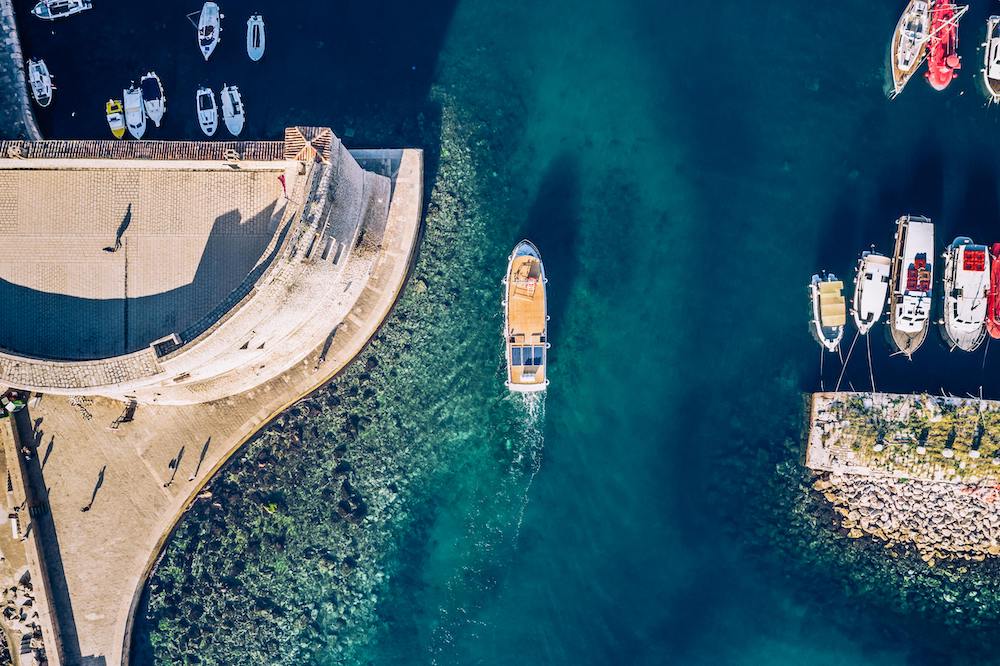
|
- Property prices & rent:
Avg. purchase price: ~€1,800–2,600/m² (Zagreb: ~€2,500/m²; Split: €3,000+; inland towns: €1,300–1,800/m²)
Rent: ~€500–800/month for a 1-bedroom in coastal towns; lower inland - Taxes:
Foreign pensions are generally taxed at 12–30%, depending on amount and origin country. However, Croatia has signed double taxation treaties with many countries, reducing tax burden. - Healthcare:
Croatia offers universal healthcare to residents via the HZZO system. Foreign retirees with residency must register and pay monthly contributions (~€80–150). Private insurance is also available but less common. - Residency:
EU citizens can register easily. Non-EU citizens can apply for temporary residence (up to 1 year, renewable) based on sufficient funds (~€2,400/month), proof of accommodation, and health insurance. After 5 years, permanent residency is possible. - Expat community:
Most expats settle along the coast—Istria, Split, Dubrovnik, and some inland rural areas. Communities are still relatively small but growing. Groups like Expats in Croatia, Digital Nomads Split, and Foreigners in Istria are active.
Switzerland
Switzerland is Europe’s gold standard for safety, healthcare, and quality of life. It’s best suited for affluent retirees seeking an ultra-comfortable and orderly lifestyle surrounded by lakes, mountains, and world-class services.
- Property prices & rent:
Avg. purchase price: ~€8,000–12,000/m² (Zurich and Geneva: €12,000+; smaller towns: ~€7,000–9,000/m²)
Rent: ~€1,800–2,500/month for a 1-bedroom in major cities - Taxes:
Foreign pensions are taxed progressively by canton (some offer favorable rates), but Switzerland has wealth taxes, and total tax burden varies. However, lump-sum taxation is available for wealthy non-working foreigners in some cantons. - Healthcare:
Mandatory private health insurance is required for all residents. Premiums are high (~€300–600/month), but service quality is top-tier—ranked among the best globally. - Residency:
Switzerland is not in the EU. Non-EU citizens must apply for a residence permit (Permit B) based on significant financial means. Quotas apply. EU citizens face fewer hurdles but still need to prove income and housing. Citizenship path is strict (10+ years). - Expat community:
Strong but upscale. Large international presence in Geneva, Zurich, Lausanne, and Zug. Communities like Internations Switzerland and Living in Geneva offer networking and support.
Germany
Germany offers world-class healthcare, efficient infrastructure, and a high standard of living. While property prices in major cities are high, smaller towns and eastern regions remain accessible. Germany suits retirees who prioritize stability, structure, and cultural depth.
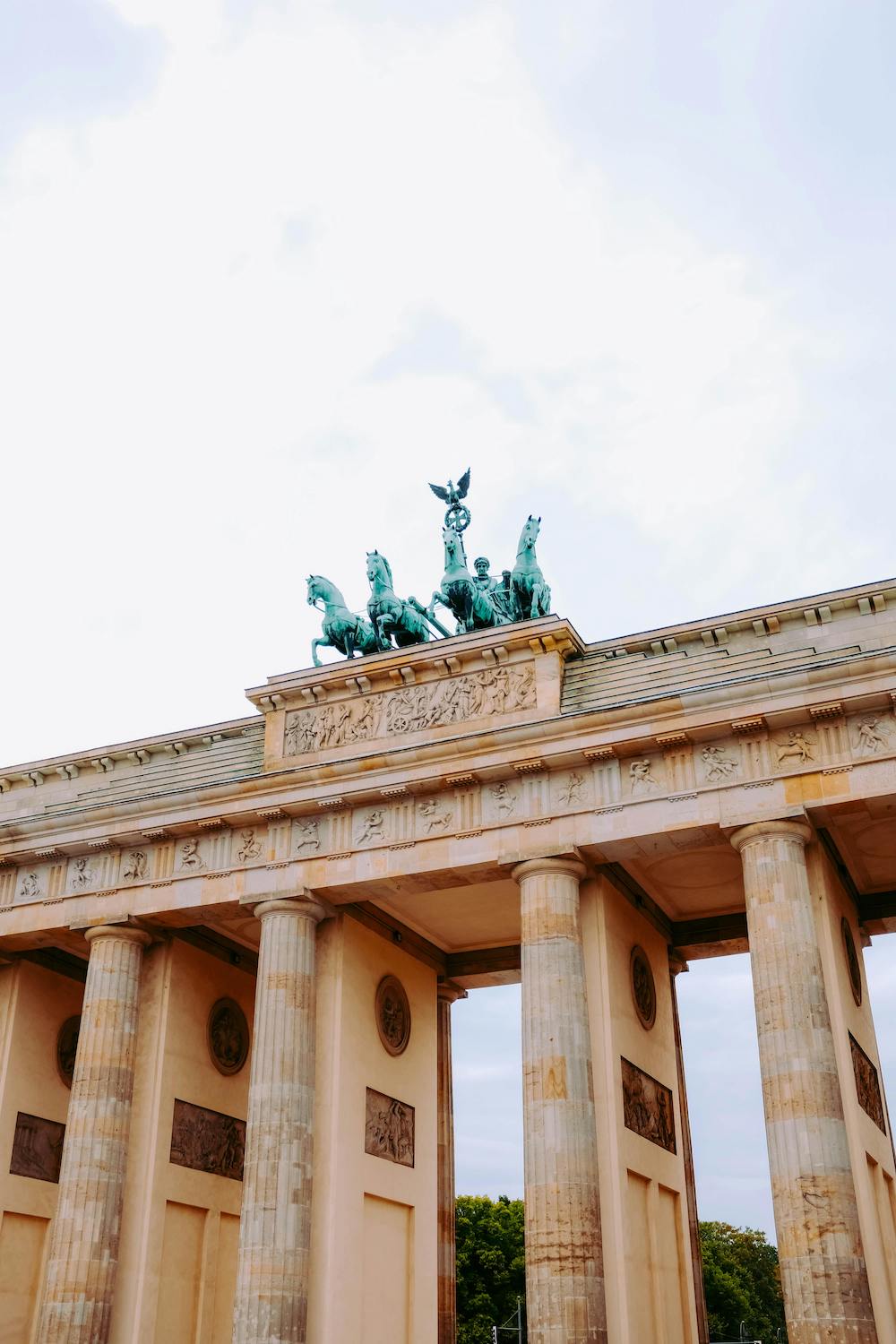
|
- Property prices & rent:
Avg. purchase price: ~€3,000–4,500/m² (Berlin: ~€5,500/m²; Leipzig, Dresden: ~€2,500–3,200/m²)
Rent: ~€800–1,200/month for a 1-bedroom in cities; ~€600 in smaller towns - Taxes:
Foreign pensions are generally taxable, but Germany has double taxation agreements with many countries. Tax rates are progressive (14–42%), but pensioners with modest income may fall below taxable thresholds. - Healthcare:
Germany’s public healthcare system is among the best in the world. EU pensioners can access it via S1 forms or register locally. Non-EU retirees typically use private insurance (~€250–400/month depending on age and coverage), with comprehensive access to clinics and specialists. - Residency:
EU citizens can move freely and register their stay. Non-EU citizens may apply for a residence permit for retirement, though Germany has no specific retirement visa—applicants must prove financial means (~€2,500/month), housing, and health insurance. - Expat community:
Berlin, Munich, and Hamburg have large international populations. Smaller university towns like Heidelberg or Freiburg are also popular among retirees for their charm and healthcare. Active forums include Toytown Germany and Expats in Berlin.
Common Mistakes When Retiring Abroad
- Underestimating healthcare and insurance costs
- Not researching residency and visa requirements in detail
- Choosing locations that are too isolated or too touristy
- Focusing only on expat communities and avoiding local integration
How to Choose the Right Country for Retirement
- Clarify your priorities: climate, healthcare, language, lifestyle
- Compare the cost of living and property values
- Investigate residency and tax implications
- Visit potential destinations for an extended stay
- Consult with legal and financial advisors
FAQ – Frequently Asked Questions
Can I receive my home country pension while living abroad in Europe?
Yes. Most EU countries allow pension transfers across borders.
Will I have access to healthcare?
In most cases, yes—depending on residency status and insurance. Many retirees opt for private insurance in the first year.
Is it better to rent or buy?
If you're planning a long-term stay or residency, buying may offer both savings and investment benefits.
Will I be able to integrate into the local community?
Yes—with effort. Learning the language, joining cultural activities, and being open-minded helps immensely.
Final Thoughts
Retirement in Europe isn’t about slowing down—it’s about choosing how and where to live with meaning. Whether you’re looking for sun, stability, spa culture or a smart investment, the continent offers a place that matches your rhythm.
Karlovy Vary, in the heart of Central Europe, is a perfect example: elegant, calm, and full of life. It blends affordability with long-term value—whether you’re retiring for good or just retreating between adventures.
From charming towns like Karlovy Vary and Valencia to high-end havens like Switzerland, Europe offers something for every kind of pensioner.
If you’re ready to invest in peace of mind, lifestyle, and quality of life, your future address might just be waiting in a forested valley with mineral springs—closer than you think.

